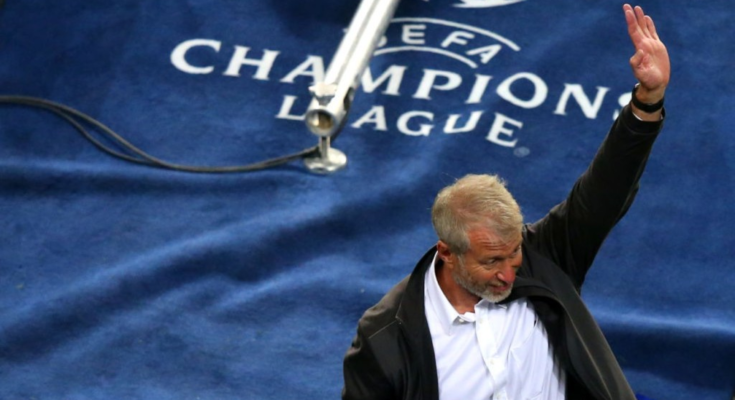UEFA, European soccer’s governing body, said Thursday that the Champions League final, the biggest match in European club soccer, will not be played in St. Petersburg, Russia. UEFA stripped Russia of hosting honors following the Russian-led invasion of Ukraine early Thursday.
The game, set for May 28, was to be played in a stadium financed by the Russian energy giant Gazprom, one of UEFA’s major sponsors.
Following an emergency board meeting on Friday, UEFA picked Paris as the alternative location for the match, which will be held in the 80,000-seat Stade de France stadium.
“UEFA wishes to express its thanks and appreciation to French Republic President Emmanuel Macron for his personal support and commitment to have European club football’s most prestigious game moved to France at a time of unparalleled crisis,” the group said in a statement. “Together with the French government, UEFA will fully support multi-stakeholder efforts to ensure the provision of rescue for football players and their families in Ukraine who face dire human suffering, destruction and displacement.”
UEFA had long resisted taking any measure to sanction Russia even when, earlier this week, Russian President Vladimir Putin formally recognized two rebel-held parts of eastern Ukraine as independent republics and moved armed forces into the region.
The conflict in Ukraine is shining a light on Gazprom and the company’s outsize influence on European soccer. In addition to controlling Russia’s top club, F.C. Zenit, Gazprom members sit on the boards of influential sports groups including the European Club Association, which represents top clubs across the continent. Since 2007, Gazprom has been a major sponsor of Schalke, one of Germany’s biggest clubs. But on Thursday, Schalke said it would be removing the Gazprom logo from its club shirts in protest over the military invasion.
UEFA still has to decide whether Russian teams still in club competitions will be allowed to continue playing. Zenit on Thursday was set to play the second game of a playoff against Real Betis in Spain in the Europa League, Europe’s second-tier club tournament.
There is also growing speculation that calls for sanctions against prominent Russian businesses and oligarchs in response to the Ukraine invasion could target Roman Abramovich, the Russian billionaire who owns Chelsea football club, last year’s Champions League winners. When the British government this week announced a list of Russian billionaires who will be subject to new sanctions, Abramovich’s name was not on the list. Nor was Alisher Usmanov’s, a Russian oligarch who holds a stake in English Premier League team Everton through a holding company, USM. But many, including members of Britain’s opposition Labour Party, have called for both men to be added to the sanctions list.


